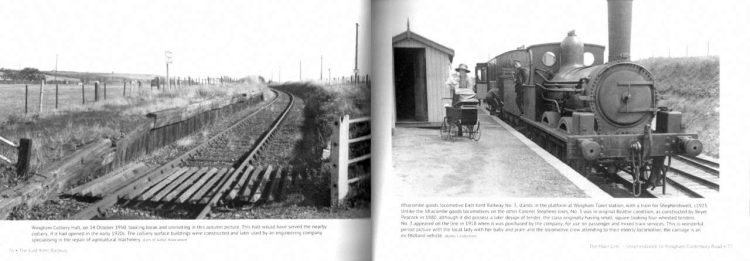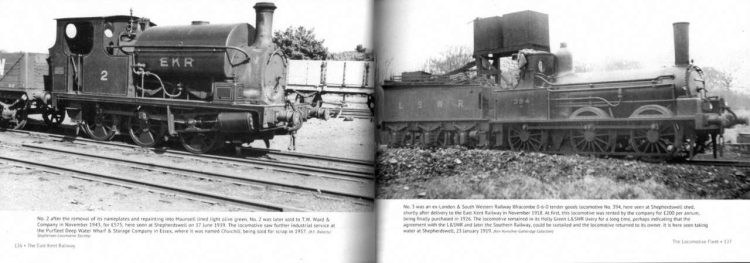Published in May 2021 as part of the “Light Railway Profiles” series, this book from publishers Pen & Sword provides a pictorial appreciation of one of Britain’s lesser-known railways.
Written by John-Scott-Morgan, the hardback book measures around 24.6 cm x 17.2 cm, is 208 pages long and has 180 black and white illustrations.
It has a published price of £25, although Pen & Sword currently has it on offer at £20.00, and at the time of writing it can be obtained from Amazon for £22.06. RailAdvent Plus members can gain an extra 25% off in Pen and Swords online store. Not yet a member? Click here to instantly gain the discounts.
This is a pictorial book about a railway that lasted through two world wars and was nationalised in 1948, becoming part of the Southern Region of British Railways, before closing to traffic in 1984 during the coal strike.
The railway was meant to open up the newly discovered Kent coalfield and help to make its shareholders wealthy, but the planned collieries along the line did not materialise in the way the promoters had hoped.
Many of the photographs illustrate why the line warranted the book’s subtitle The line that ran to nowhere. Four short introductory chapters describe the thinking behind creating the railway, its history, and the preservation era. The rest of the book provides a wonderful insight into the line. An excellent choice of photographs is complemented by equally well-researched captions.
A large chapter is devoted to The Main Line from Shepherdswell to Wingham Caterbury Road, with shorter chapters devoted to The Richborough Port branch, The Last Day of Passenger Traffic, The British Railways Period, The Weed Killing Tain, and Tilmanstone and Guilford Collieries.
A substantial chapter on The Locomotive Fleet is followed by forays into Locomotives on loan to the East Kent Railway, The Carriage Stock, The Wagon Fleet, and Shepherdswell Shed and Works. The book concludes with an insight into The Preserved Line.
Within a few pages, it soon becomes apparent that the railway’s hoped-for fortunes lay with freight traffic, and facilities for passengers were very basic. The author is to be congratulated for sourcing so many photographs of the railway in operation.
Refreshingly for a book on a railway with such a small route mileage, there is a great variety of subjects. And for such a small railway, the sheer variety of locomotives is astounding, many of which the author has been able to illustrate.
The state of Wingham Colliery Halt in the left-hand photo below makes one wonder whether the railway did enough to attract custom. On the right is a photo dating from 1923 which typifies the effort that the author has gone to in producing a book that gives the reader the feel of what the railway must have looked like in what could loosely be termed it heyday.

Another fine example of the author’s diligence in searching out subjects for inclusion shows on the right a passenger train on the Richborough Port branch in 1926.

On the right is yet another vintage photograph, over 100 years old. Interestingly the caption says that the locomotive was rented for £200 per annum!

In summary, this book provides a good pictorial appreciation of one of the country’s lesser-known railways. It covers the entire life of the line through to the present day preserved section of the line. The brief history of the line provides an interesting insight into why its backers thought it would ever make money. One minor niggle is the inconsistency of photograph sizes on facing pages.
The book is available to purchase from Amazon and from Pen & Sword. RailAdvent Plus members can gain an extra 25% off in Pen and Swords online store. Not yet a member? Click here to instantly gain the discounts.
We would like to thank Pen & Sword for providing RailAdvent with a copy of the book for review.






Responses